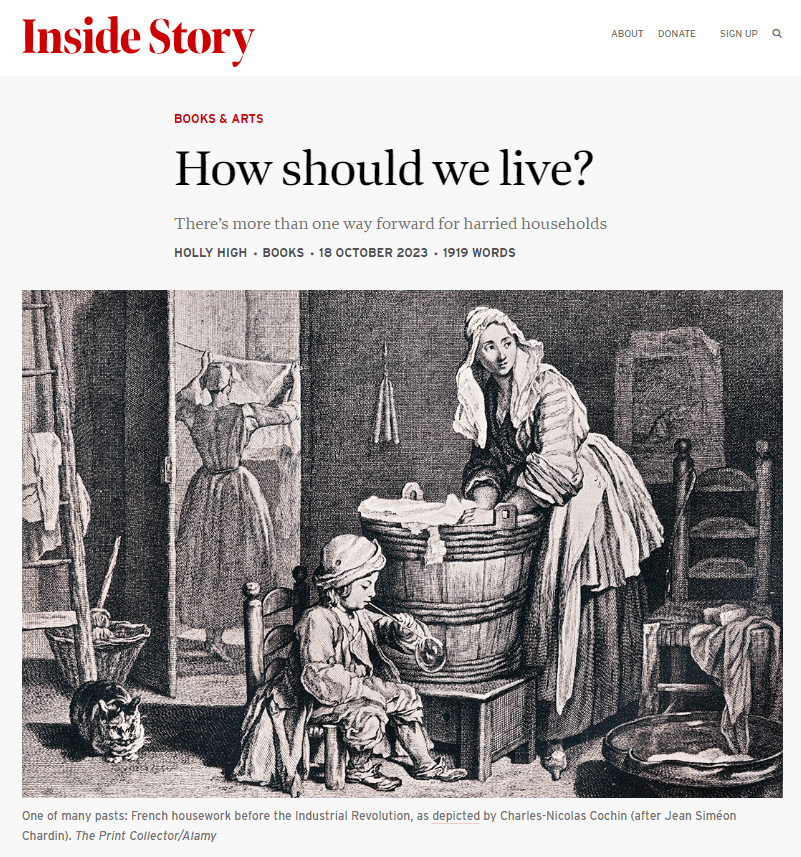In my recent article on Inside Story I review Helen Hester’s and Nick Srnicek’s new book After Work: A History of the Home and the Fight for Free Time.
After Work fuses visions for a post-work world with calls to recognise and tackle the crisis in care. Sitting on the banks of the Mekong River, seeing traces of the poverty, grief and physical devastation left by war, it seemed indecent to be ruminating on the difficulties of the life I lead at home in Australia. My life, and presumably Hester’s and Srnicek’s, is the kind common across what they call the “rich world”: chronic overwork, real or imagined precarity, a constant feeling of being harried, kids I adore but can’t be with enough, and endless domestic chores at the end of a long week.
My experience of family life in Laos allows me to take a critical viewpoint on their book. Their explanations around how typical families in “the rich world” have come to live the way they do appear like myth-making. Reading it in Laos forced me to see the history of coercion behind the crisis Hester and Srnicek describe. It is not that we “find ourselves” in isolated nuclear families and impossible work–life imbalances. And not everyone lives that way today. My own typical Australian life is very strange from the perspective of my Lao family. Some of Hester and Srnicek’s discussions of practices within rich households simply place limits on readers’ imagination.
Hester and Srnicek speak truly when they say that typical lives in “the rich world” are now untenable. I agree. Better lives are possible. In building these, let’s not narrow our vision needlessly. The sparks of yet-to-be-realised futures may be hiding in plain sight.
Find the full article here on Inside Story.
